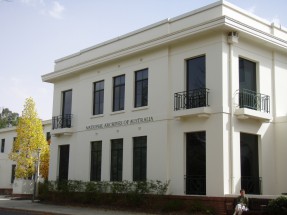
Federal government agencies could hardly miss the top level push to make them go ‘digital first’, but the nation’s chief record keeper and information governance watchdog wants to see some order and interoperable structure embedded into the process lest it becomes a chaotic mess.
The National Archives of Australia has issued a policy to all agencies to help ensure the information they retain that as part digital their digital transformation treats data and information as a valuable asset so it can be accessed, sliced and diced in years to come rather than confined to the dustbin of unsupported file formats.
It shouldn’t be a complete surprise given Archives has been trying to wean agencies off paper for several years to save taxpayers money and cut down on ever increasing demand for highly secure storage space.
Dubbed the ‘Digital Continuity 2020 Policy’ the electronic riding instructions are a big deal for departments and agencies hurtling down the digital transformation tunnel because the effectively mandate how information and data will be kept for a post-digital world.
The big push is being officially launched by Department of Finance Secretary Jane Halton at the behest of the archives, a presence certain to lend gravitas and attention to the new policy.
While the concept of treating government data and information as public asset has been around for some time, the more gradual transition of the decision making paper trail from a print to electronic environment remains a serious challenge for many agencies.
Importantly, the national record is stressing up front that its work is “aligned” to the work of the Digital Transformation Office.
The Archives’ new policy makes it clear that it wants processes that are documented taken along for the digital ride in an orderly fashion.
“Agencies will transition to entirely digital work processes, meaning business processes including authorisations and approvals are completed digitally, and that information is created and managed in a digital format,” the Archives says in its new policy.
“Agencies will have interoperable information, systems and processes that meet standards for short and long term management , improve information quality and enable information to be found, managed, shared and reused easily and efficiently.”
The Archives is also asking for an annual update on the state of affairs of digital government information courtesy of an information governance framework, the collective results of which Archives will then pass on to the government.
The creation of that framework will be the one to watch first because Archives has set and end of financial year date to have the “recommended action” of establishing both an Information Governance Committee and an Information Governance Framework.
“The new policy’s principles for agencies include the establishment of information governance committees by 30 June 2016, compliance with standard ISO 16175 and minimum metadata standards,” Archives said in a standard.
In many cases meeting the new mandates will mean agencies will have to find, train or access suitably skilled staff to meet their goals, and Archives is encouraging agencies to factor that into their future plans.
In a subsection of the policy headed “What success looks like” Archives observes that “information management workforce planning and capability development will enable agencies to have access to appropriately skilled information management staff.”
For some agencies that could mean finding new staff . . . perhaps just as well the Secretary of the Department of Finance is presiding over the policy’s launch.





Leave a Reply